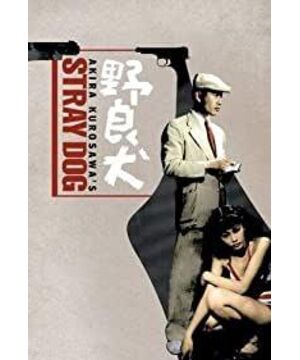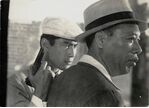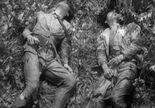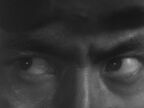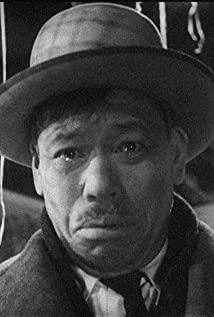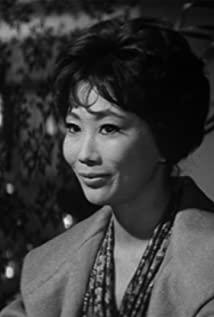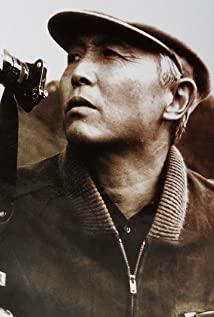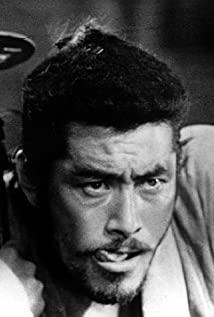Murakami, who had just become a police officer (now known as a rookie in the workplace), had his gun stolen on the bus. An exceptionally hard and tortuous gun-hunting journey begins. I think Murakami's entire gun-hunting journey is a process in which a man, after making a major mistake, bravely faces the mistake, and then finds redemption.
The name of the movie is "Wild Dog", my Japanese level is not high, but my guess is "The Dog of the Lost Family", it should not be wrong. What Kurosawa is implying here is that in Japan's harsh post-war social environment at that time, every Japanese lived a "dog-like life". Or to be more precise, it means that every Japanese civilian lives the same hard life.
Murakami's chase scene with the female thief at the beginning of the movie very interestingly points out this theme. The thief often keeps an eye on his victim to complete his "job". But because he lost his pistol, Murakami was forced to perform a very dramatic role reversal with the female thief, and the victim (the police officer Murakami) turned to stare at the thief. In the end, the female thief couldn't take it anymore and told Murakami about the clues. The filming of this scene was very touching. Murakami and the female thief both sat on the terrace watching the stars, and the moving harmonica sounded beside them. A newcomer in the workplace who has suffered a major setback in his career, a woman who has been in a dirty job all his life, the situation of the victim and the perpetrator is so the same at this time!
But what Kurosawa wants to express most in this movie is, "Every one of us lives the same dire life (like the hot weather in the movie.) But the important thing is the choice, the choice to be a good person (like the hot weather in the movie.) Detective Murakami), or be a bad guy (Murder and Robber Yuzuo).
The chase scene at the end of the movie is very moving and deeply reflects the above theme. In a suburban station, Murakami looks for the criminal Yuzuo among the passengers waiting for the car. But everyone seems to be dressed the same - white hat, white suit, white pants, black leather shoes. (Symbol that everyone can be a bad guy, the key is choice) Then he finds You Zuo, and then there is a wonderful chase scene. (There is also this scene in Jiang Wen's "Looking for a Gun", which can be regarded as a tribute.) In the end, they faced each other in the woods, but You Zuo, who was holding a pistol, didn't shoot Murakami, but wounded him. (It is implied that You Zuo is not a born cold-blooded murderer, but that he has gone too far on the wrong path of life.) At this moment, Mozart's music sounded. Where does the music come from? It turned out that the children of a middle-class family were playing the piano. She heard the gunshots, but she didn't care and went back to continue playing the piano. (It alludes to the importance of education, and at the same time implicitly criticizes the fact that the wealthy at the time were indifferent to the suffering of the common people.) Then the criminal and the police scuffled together, and the two who rolled in the mud could not tell who was who. Yes, yes! At this juncture of life and death, life is the most important thing. For two people who also want to subdue their opponents and save their own lives, how similar they are! Finally, the police subdued the criminal, handcuffed him, and they lay side by side in the grass full of flowers. A group of carefree children singing nursery rhymes passed by them, two people lying together in the grass, did they ever appear in the same group? You Zuo, who had already lost his mind during the crime, smelled the fragrance of flowers and plants, bathed in the warm sunshine after the rain, and burst into tears. He realized that he could no longer enjoy such a life at this moment. But life won't give him a choice anymore.
View more about Stray Dog reviews


